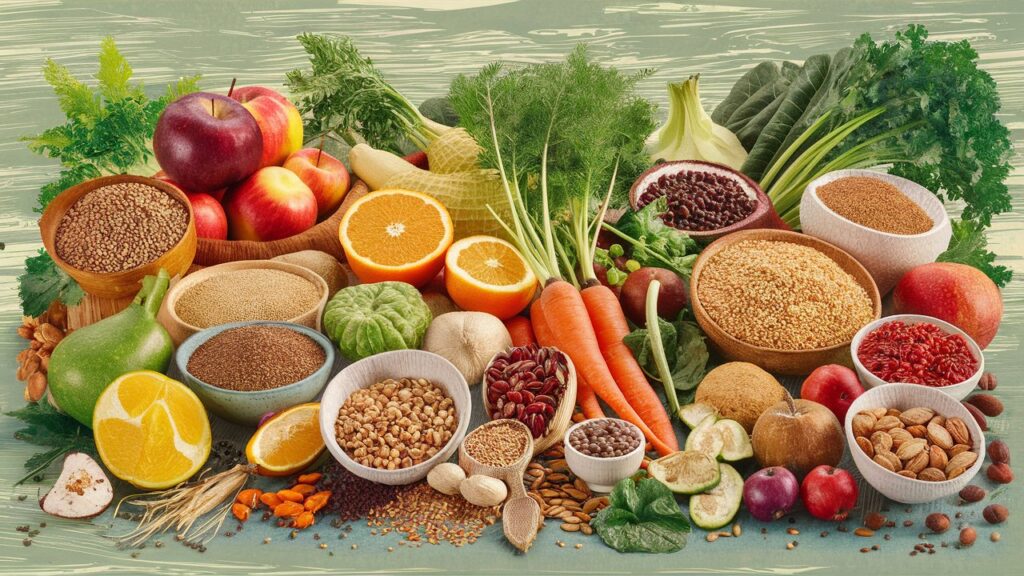The way we eat has a significant impact on the health of our planet. Adopting a plant-based diet is a powerful way to reduce our environmental footprint and promote sustainability. The Benefits of a Plant-Based Diet for the Environment are countless.
According to the National Institutes of Health (NIH), adopting a plant-based diet can achieve just that. By making this switch, we can:
- Free up a staggering 76% of land currently used for farming
- Slash greenhouse gas emissions by a whopping 49%
- Reduce water pollution by 49%
- Conserve precious water resources by 21% and 14%
And the best part? We’ll also be treating our bodies to a healthier, more sustainable way of eating.
In this blog, as we explore the incredible impact of plant-based diets on both our well-being and the health of our planet. Discover how the food choices we make today can shape a brighter, more sustainable future for generations to come.
Environmental Impact of Animal Agriculture
Greenhouse Gas Emissions: Animal agriculture accounts for approximately 14.5% of global greenhouse gas (GHG) emissions, largely due to methane production from livestock digestion and manure management. These emissions contribute significantly to climate change.
Water Usage: Producing animal products requires significantly more water compared to plant-based foods. For instance, it takes about 1,800 gallons of water to produce one pound of beef, while only 39 gallons are needed for one pound of vegetables.
Land Use: Around 70% of agricultural land is dedicated to raising animals for food, including pasture and land used to grow feed crops. This extensive use of land leads to deforestation, habitat loss, and biodiversity decline.
Pollution: Animal agriculture is a major source of water pollution and soil degradation. Runoff from farms can carry pollutants such as nitrogen, phosphorus, and antibiotics into water bodies, causing eutrophication and dead zones.
The Benefits of a Plant-Based Diet for the Environment

Reduced Greenhouse Gas Emissions: Switching to a plant-based diet can cut GHG emissions by up to 50%, as plants generally produce fewer emissions than animal agriculture. This shift helps mitigate climate change and reduce our carbon footprint.
Water Conservation: Plant-based diets require significantly less water. For example, producing one pound of tofu requires only 302 gallons of water, compared to the thousands of gallons needed for meat production. By consuming more plant-based foods, we can conserve this precious resource.
Land Preservation: Choosing plant-based options helps preserve land for wildlife and reforestation. This reduces the need for deforestation and land conversion, promoting healthier ecosystems and greater biodiversity.
Reduced Pollution: Plant-based diets contribute to lower levels of water and soil pollution. By reducing the demand for animal products, we decrease the runoff of harmful substances into the environment, leading to cleaner water and healthier soil.
Simple Swaps for a Plant-Based Diet
Start with Meatless Mondays: Dedicate one day a week to eating plant-based meals. This simple step can help you gradually reduce your meat consumption and explore new recipes.
Try Plant-Based Milk Alternatives: Swap cow’s milk for plant-based alternatives such as almond, soy, oat, or rice milk. These options are not only delicious but also have a lower environmental impact.
Incorporate More Beans and Legumes: Beans, lentils, and chickpeas are excellent sources of protein and can easily replace meat in many dishes. They are also more sustainable to produce.
Experiment with New Fruits and Vegetables: Diversify your diet by trying different fruits and vegetables. This not only adds variety to your meals but also reduces the demand for resource-intensive animal products.
Conclusion
Adopting a plant-based diet is a powerful way to reduce our environmental footprint and promote sustainability. By making a few simple swaps, we can significantly lower greenhouse gas emissions, conserve water, preserve land, and reduce pollution. Embrace the benefits of a plant-based diet for the environment and start making a positive impact today!

